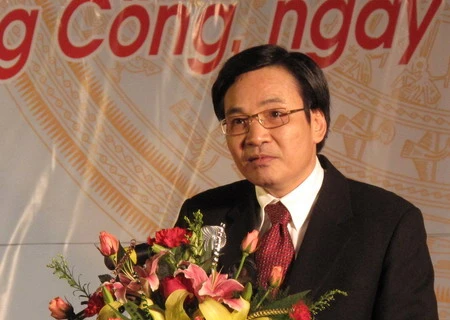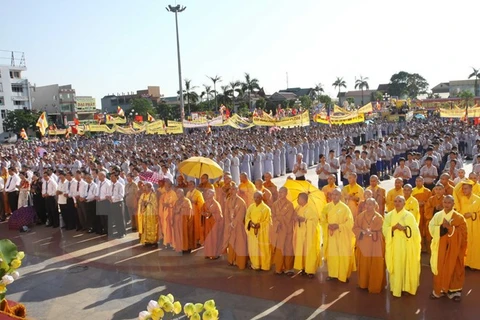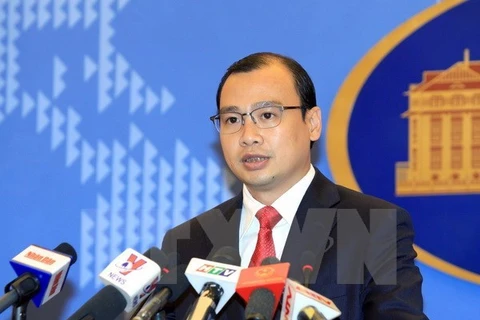A large number of religions in Vietnam have coexisted peacefully since the country was established on September 2, 1945, according to religious officials.
A lot of stories demonstrate friendship between practitioners of different religions in Vietnam, including this one told by Priest Doan Minh of the Hoi An Church:
“That day (the day of the funeral ceremony of the Most Venerable Thich Giac Trang, head of the Ngoc Cam Buddhist Temple in Hoi An), we were there to greet the coffin and present a wreath of flowers. The parishioner who held the wreath of flowers was on his knees for a while in front of the funeral car before placing it on the altar in front of the Monk Giac Trang portrait. That impressed me. The priests and parishioners are well respected by Monk Thich Giac Trang, who is also greatly loved by parishes here.”
Priest Doan Minh of the Hoi An Church said that despite differences in faith, Buddhists and the Church in Hoi An have maintained a positive relationship.
Catholic churchgoers could go to the pagodas to borrow bonsai plants for ceremonial events, and the two sides helped each other when they had big events, Minh said.
That’s why Monk Thich Giac Trang wanted the car carrying his body to stop at the gate of the Church as a farewell before being carried to the crematory in Da Nang.
During the days of the funeral, the Hoi An Church, Minh and the Church’s Presbyterian Council came and lit incense.
Chairman of Hoi An’s People’s Committee Nguyen Van Dung said Hoi An had four big religions – Buddhism, Roman Catholism, and Protestantism. Others include Cao Dai, Hoa Ha and Bah’ai.
The friendliness between the religions is shown in their shared goal of creating a united, developed nation.
“The magical thing is that all religions in Vietnam, despite differences in faith and worshipping practices, live in peace, unity, and mutual love,” said Nguyen Tan Dat, head of the Hoa Hao religion’s Central Steering Committee. He spoke at a meeting between Deputy Prime Minister Nguyen Xuan Phuc and religious representatives during a ceremony for the 70th anniversary of National Day.
Vietnam is a tolerant, peace-loving nation, and this included acceptance of a variety of religious principles, he said. All religious activities are carried out in the interest of the country.
The 8,000 sq.m Gothic-style Phu Cuong Church sits next to a six-way roundabout in the southern province of Binh Duong’s Thu Dau Mot city. There, Priest Cao Dinh Phuong spoke about charity and humanity in Catholicism and other religions.
Leading a good life and helping the community was common among different religions and had become a thread connecting them, Phuong said. In his sermons, he focused on Gospel tenets that told stories of philanthropy and humanity.
Charitable drives like aid for flood victims, Tet gifts for low-income families, and soup for patients and their relatives in need in the province attracted not just Catholics, but also Buddhists and people from other religions.
The Church could only offer a limited amount of aid, so it worked with other religions to bring more help to people in need, Phuong said.
Religions organised some inter-religion dialogues and invited researchers and experts on Vietnam’s cultural tradition to discuss about the words ‘Hieu (gratefulness to parents)’ and ‘ai nhan (kind persons).’
According to Bui Thanh Ha, deputy head of the Government’s Committee for Religious Affairs under the Ministry of Home Affairs, unity among religions was critically important for the country. Their co-operation helped keep society unified and stable.-VNA

Dien Bien reviews religious affairs
A conference was held in Dien Bien province on September 22 to review the implementation of the Prime Minister’s instruction No 01/2005 regarding Protestantism over the past 10 years.























